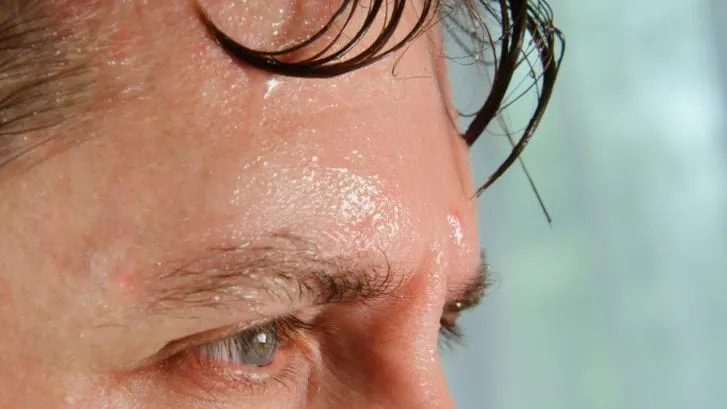Vitamin D Deficiency: To maintain optimal levels of this crucial mineral for general health and wellbeing, it is imperative to be aware of the signs and causes of vitamin D deficiency and to take the appropriate action.

Sweating is a normal bodily function that aids in temperature regulation and toxin removal. On the other hand, excessive perspiration may be a reason for worry. Hyperhidrosis, or excessive sweating, may indicate a number of underlying medical issues. Deficiency in vitamin D is one such illness that is becoming more and more well-known.
Vitamin D is a crucial nutrient that plays a vital role in maintaining our overall health.It facilitates the absorption of phosphorus and calcium, both of which are necessary for healthy teeth and bones. In addition, vitamin D is essential for preserving the health of our cardiovascular system, immune system, and even our mental state.
Cause of Vitamin D

Living in places with less sunlight, wearing clothing or sunscreen, or spending most of our time indoors can all reduce our exposure to sunlight and increase our risk of developing a vitamin D deficit. You run the risk of being vitamin D deficient if you don’t eat foods high in the nutrient. Individuals who are obese have higher body fat percentages, which lower blood levels of vitamin D.
Excessive Sweating as a Sign of Deficiency:

Sweating is the body’s natural way of controlling its temperature. But if our body begins to perspire excessively even when we are not exercising or in a warm atmosphere, it can be a sign of an underlying medical condition such a vitamin D deficiency.
Apart from excessive sweating, other symptoms that could indicate vitamin D deficiency include:
- Fatigue: Vitamin D plays an essential role in maintaining our energy levels. Inadequate levels of vitamin D can lead to fatigue and tiredness, even after getting enough sleep.
- Muscle weakness: Vitamin D is needed for muscle growth and function. Deficiency of this vitamin can result in muscle weakness, making everyday tasks more challenging.
- Mood swings: Due to its role in the synthesis of serotonin, a hormone that controls our mood, vitamin D is also referred to as the “sunshine vitamin” Depressive symptoms and mood swings may result from a vitamin deficiency.
- Bone pain: As mentioned earlier, vitamin D helps in the absorption of calcium and phosphorus, which are crucial for healthy bones. Deficiency of vitamin D can lead to weak and painful bones, increasing the risk of osteoporosis.
- Hair loss: Vitamin D plays a significant role in hair growth and maintenance. Deficiency of this vitamin can result in hair loss or thinning.
Treatment and Prevention:

The treatment for vitamin D deficiency involves increasing your intake of vitamin D through supplements and incorporating vitamin D-rich foods into your diet. Furthermore, getting some sun exposure outside can help raise your vitamin D levels. Wearing sunscreen and avoiding peak hours when the sun’s rays are highest are two important precautions to consider while exposing your skin to sunlight.
Read also : Hypertension and Stroke: Risk may be increased by high blood pressure











